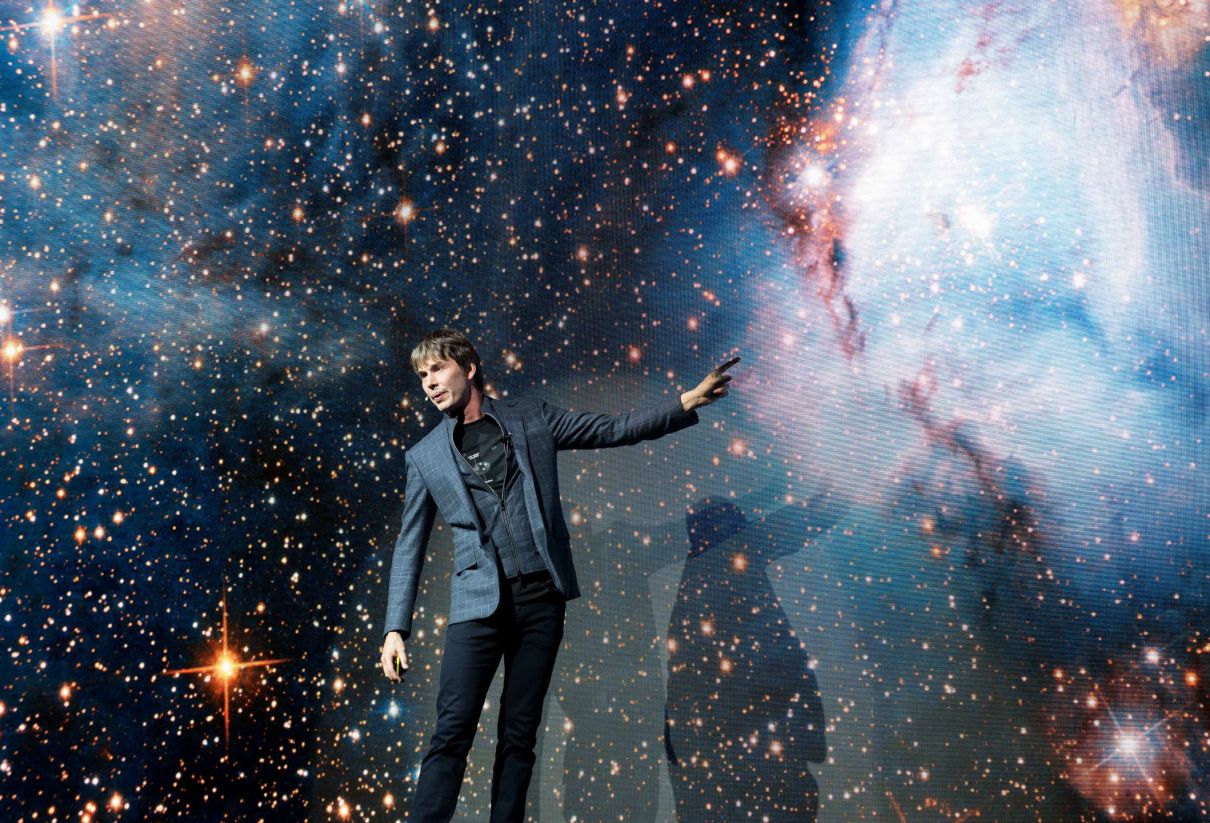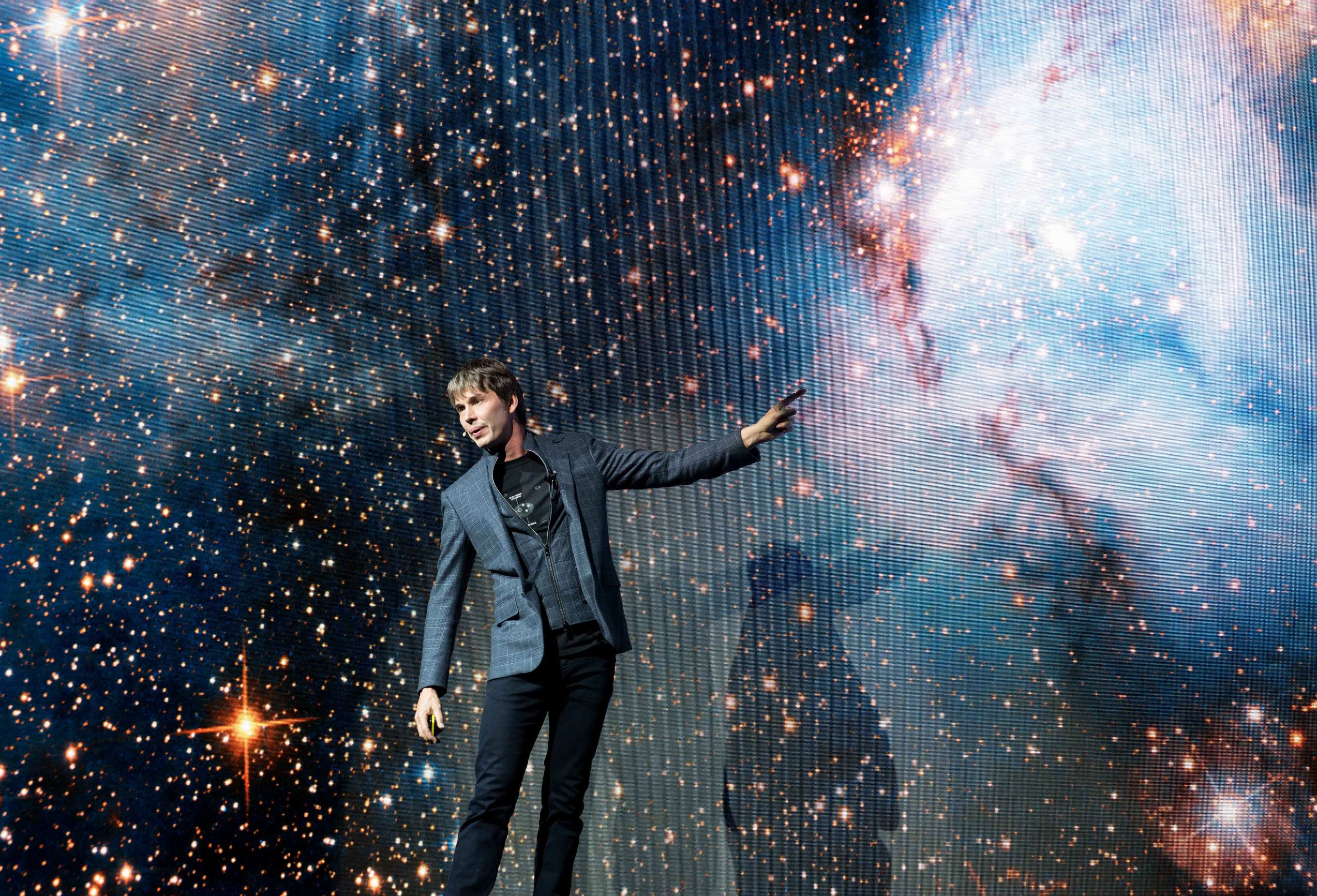Of Physics And Philosophy

Professor Brian Cox hopes to use astrophysics to help us answer the meaning of life.

When he’s not on Twitter complaining about Brexit to his 2.8 million followers, Brian Cox, considered one of this generation’s best-loved scientists, is, in his own words, “taking the piss out of Flat Earthers”.
He is, of course, referring to a growing number of conspiracy theorists stating that the Earth is flat instead of a globe, featured in a Netflix documentary this year.
To be fair to Cox, there can be few things more irritating than having your life’s work, and that of your fellow scientists, denied by thousands of people who believe we are living on a giant, flat petri dish.
For Cox is at heart, an educator, and Sir David Attenborough himself has said he would wish to pass the baton to him. Cox’s life goal is to make science accessible to all and with a long list of job titles (from professor of particle physics at The University of Manchester to The Royal Society professor for public engagement in science and a fellow of the Royal Society) he is surely on the road to achieving it.
This year, he is embarking on his first international tour to promote wider thinking about space and the cosmos. The show, with state-of-the-art effects created by award-winning visuals company Double Negative, begins in the UK and North America in April and May, followed by Hong Kong, Singapore, New Zealand and Australia in June, returning to the UK in September.
The ability to communicate, in layman’s terms, the complexity of our origin is part of Cox’s genius. No wonder he set two Guinness World Record titles for the speed at which his first live tours sold out.
We meet at the preview for his new world tour, Universal, which aims to promote ideas on the cosmos, exploring the planets, the nature of space and time from the Big Bang to black holes and the fate of life and intelligence seen in the Universe.
Cox says that right now it has never been more important to be communicating basic facts and asking obvious questions.
“The key to it is to explain early on in school what science is; that it is not a collection of facts but a way of acquiring reliable knowledge about nature in an engineering sense. You need reliable knowledge to make predictions, based on data, about what may happen to the climate in the future, for example.”
Science, he continues, is not a point of view that has a series of dogmatic axioms you can take or leave. “It should form a personal library of knowledge that allows you to be comfortable with being wrong, because every time you are wrong you learn something. That’s the way you make progress. It’s a character trait that I think needs to be taught, because, right now, people just value being seen to be right,” he explains.
The Flat Earth Society, adds Cox, “doesn’t matter”, in itself, but it is indicative of a more egregious social problem today. He points to a general mistrust in institutions and authority that is not confined to conspiracy theories about science, but about politics too. In fact, anything from the Moon landing to 9/11 to public health policy or climate policy, seems to be amassing ever-greater groups of deniers.
“This is a new phenomenon of the current moment where people are suspicious of even the most basic facts about our planet and science,” he says.
Like Einstein, who, along with Richard Feynman, is one of his heroes, Brian Cox is as much philosopher as he is a scientist. Perhaps the two can never quite be separated. But the bafflingly simply questions he asks make you see not just the world in a whole new light, but question your entire existence. One of the most common topics that people ask him, he says, is around the meaning of life.
He jokes: “I’m not going to tell you the meaning of life, because it’s only, like, a hundred dollars a ticket. But the point is, the meaning of life is something we all must arrive at independently and personally.”
“For me,” Cox continues, “it’s important that in principle you cannot be immortal and structure in the universe lasts for a finite amount of time. Our presence in the universe is temporary. Life is temporary. Your life is simultaneously very small and physically insignificant, yet very valuable. This planet is the only place where meaning currently exists in the galaxy, which makes it incredibly valuable.”
He makes an analogy to child-rearing, which is a temporary joy. “It is like when your children grow up and you stop playing with them in the woods building twig houses and you let them go out into the world. That does not devalue the time you spend with them when they are younger, it makes it more precious. And, I think, coming to terms with that dichotomy, is what it means to be human.”
This article originally appeared in Billionaire's Visionaries Issue, March 2019. To subscribe contact









